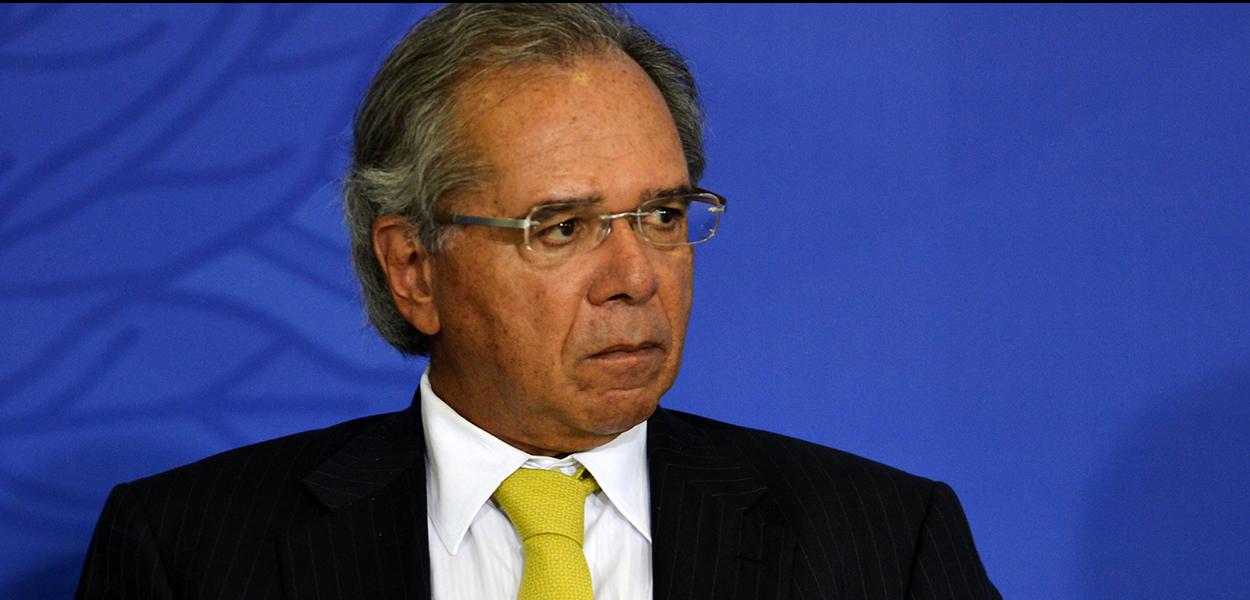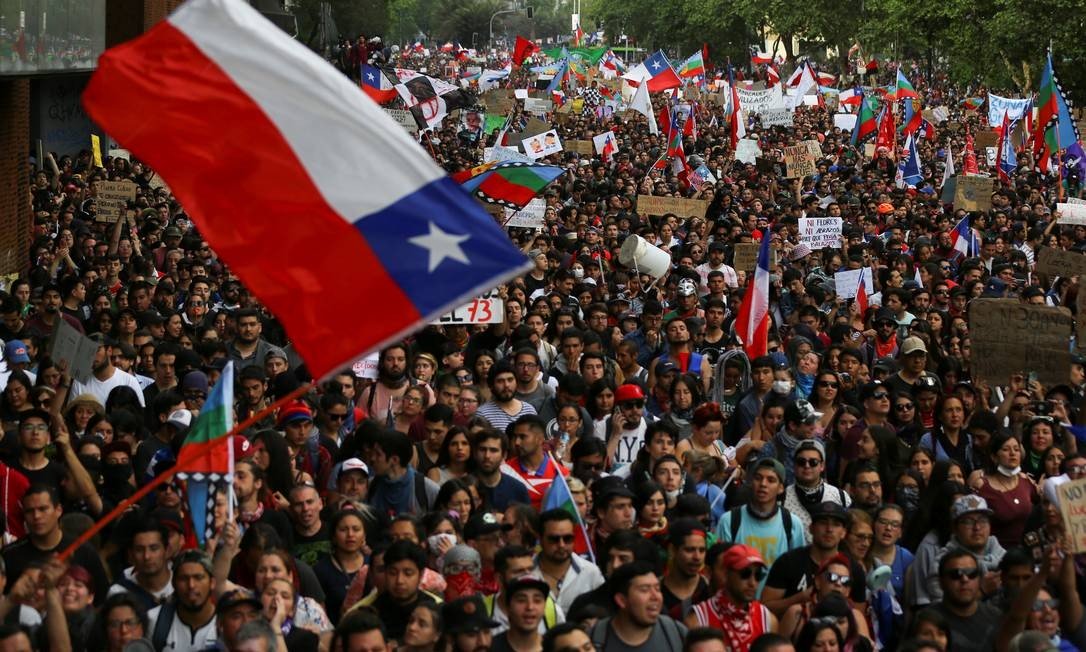RIO DE JANEIRO, BRAZIL – The wave of discontent and street protests sweeping through South America has not reached Brazil, but the fear and restlessness of a potential contagion are obvious. Economy Minister Paulo Guedes conceded on Monday night, when in the USA, that fear of an outbreak on the streets is the reason why the government has halted its ambitious reform program to open the economy and shrink the state.

Guedes even evoked the AI-5, the dictatorship decree that sparked off the “years of lead [bullets]” and closed Congress, because “it’s irresponsible to call someone to the streets now to say they have to take over power,” he said, referring to former President Luiz Inácio Lula da Silva. And he cautioned: “Don’t be alarmed if someone asks for the AI-5”. Outrage was instant.
Guedes openly explained the predicament at a long press conference in Washington after meeting with members of Donald Trump’s administration. He conceded that the unprecedented wave of protests in Latin America is the reason why President Jair Bolsonaro’s government halted the tax and administrative reform it was going to submit to Congress this month.
“It is true that it has slowed down. When everyone starts going out to the streets for no apparent reason, you say: ‘No, stop everything so that we don’t provide them with any pretext. Let’s see what’s happening first. Let’s understand what’s happening,” he said, according to Estado de São Paulo.
The plenipotentiary minister of economic affairs, a former investment banker with little political experience, and his reformist agenda are the reasons why the entrepreneurial sector granted its support to Bolsonaro’s government from the very beginning. This government has managed to push ahead with the unpopular social welfare reform but does not want to take risks.
Guedes stressed that the Brazilian economy is beginning to recover, said Bolsonaro is sticking to the reformist agenda and minimizing the fact that the dollar is breaking records in relation to the Brazilian real. The dollar opened at R$4.25 on Tuesday, a new nominal record for the American currency.
After the passing of the welfare reform, Guedes’ economic package has at least five legislative proposals that require changes to the Constitution. Officially, now the minister concedes that the tax and administrative proposals were deferred for fear that the leftists will mobilize their militancy with large demonstrations in the streets – the first, designed to simplify the tax system, and the second, to reduce wages and stability of new public officials.
But the picture is more complex. To begin with, the resistance to such a profound change in public service would not only affect the traditional left-wing forces, but also the powerful lobbies of civil servants in Brasília. The same is true for the government’s plans, at least on paper, to remove subsidies from some productive sectors, which would also not progress without resistance from the entrepreneurial sector.

In the background, there is also disorganization within Bolsonaro’s own base in Congress. The president created a new crisis with his congressional bench by abandoning his party to form a new party, the Alliance for Brazil, while the Chamber decided to focus its efforts on debating a proposal to reverse the Supreme Court’s decision that allowed Lula and 5,000 other prisoners to be released.
Rodrigo Maia, the Chamber’s president, who has in fact coordinated the approval of economic agendas in the legislature, did not take Guedes’ speech at face value: “If we are concerned about the dissatisfaction of society, we will not solve the problem only by criticizing ex-president Lula’s rhetoric. It was very radical, suggesting that someone can talk about the AI-5”, said Maia.
“We have to provide permanent solutions. Where does the problem of the State lie? It is in the concentration of tax and transfer resources in the elite of Brazilian society. From the public and private sectors. We must have the courage to face this discussion”, he argued.
Brazil keeping an eye on its neighbors
In Brazil, everyone is watching the bustling neighborhood. The demonstrations persisting in Chile –the model for Guedes’s reforms– and in Colombia, the less intense protests in Bolivia, Ecuador and Peru, the victory of the Peronist left-wing in Argentina and even the recount of votes in the ever stable Uruguay are of concern to Bolsonaro’s government and are an inspiration to the opposition. Lula’s harsh speech after leaving prison only added pressure to this cocktail. Venezuela and its deep-rooted crisis are a separate chapter.
Guedes attacked Lula‘s harsh speech now that he has regained his freedom, although the ex-president is not allowed to contest elections. “It’s irresponsible to call someone to the streets now to wreak havoc, to say they must take power. If you believe in democracy, you hope to win and be elected,” said the minister, who referred on two occasions to the AI-5 decree (of December 1968, the fifth of the dictatorship’s Institutional Acts), which, in addition to closing all legislatures, suspended habeas corpus, among other measures.
Guedes then tried to convince the press that the interview was off-the-record, that is, it was not to be published, and emphasized that “the Planalto would never support an AI-5, that is inconceivable”.
Brazil had its greatest period of discontent in 2013. It started unexpectedly, as it has now done in neighboring countries. The 30-centavo increase in bus fares was the spark that led Brazilians to take to the streets against corruption and the political class.
In the long run, that explosion would lead to an unprecedented political division, including the impeachment of President Dilma Roussef. Operation Lava Jato brought with it the arrest of a large number of political and business leaders and, indirectly, the election of President Bolsonaro.
Source: El País

